As 2016 comes to a close, the Global Observatory offers a list of notable books published throughout the year, recommended by staff of the International Peace Institute.
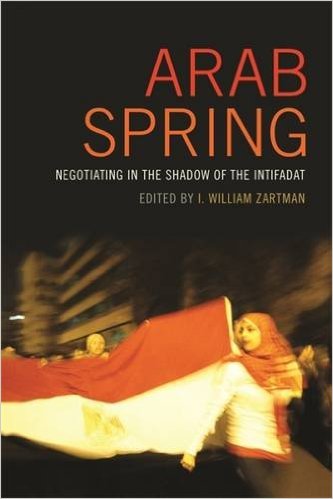 Arab Spring: Negotiating in the Shadows of the Intifadat, edited by I. William Zartman (University of Georgia Press)
Arab Spring: Negotiating in the Shadows of the Intifadat, edited by I. William Zartman (University of Georgia Press)
Though the process is still very much still in progress, there has been no shortage of attempts to explain the origins, trace the trajectory, and draw out the conclusions of the Arab uprisings. However, the attempt by I. William Zartman in his edited volume Arab Spring: Negotiating in the Shadow of the Intifadat stands apart. This very prolific professor of international relations has over the decades—and through the pages of some 20 books—turned conflict resolution into an academic discipline in its own right. In the process, he has defined its parameters. Zartman is therefore uniquely equipped to place the tumultuous recent events of the Arab region in their proper historical and academic context. These were—and still are—a set of developments determined by a desire for change from an old to a new order and, therefore, at heart involved a negotiation of that transformation. It is through this lens that Zartman offers a conceptual framework for negotiating transitions, with a team of experts—most of them from the very countries where the events they describe took place—providing their insights. There is also a chapter on South Africa and another on Serbia, which serve as points of comparison. Recommended by Jose Vericat, Adviser.
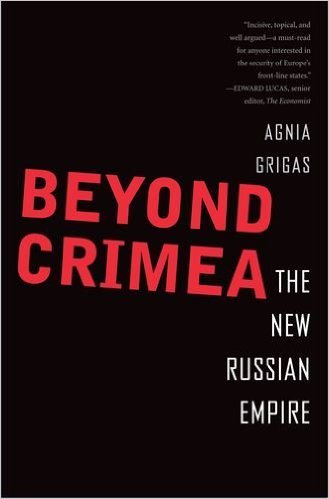 Beyond Crimea: The New Russian Empire, by Agnia Grigas (Yale University Press)
Beyond Crimea: The New Russian Empire, by Agnia Grigas (Yale University Press)
There is heightened competition between Russia and the West in Europe, with much muscle-flexing from Moscow in an effort to destabilize the situation along its borders. No one imagines a full scale Russian invasion of the Baltic nations—the collective defense Article 5 of the NATO treaty would make that too risky for Moscow—but a more subtle kind of invasion and occupation may be underway, and that is the subject of this book. Agnia Grigas identifies this as “compatriot protection,” an approach based on a premise promoted vigorously by Moscow that Russia has the right—indeed the responsibility—of coming to the assistance of the many ethnic Russians and Russian speakers in the onetime Soviet space who were left behind when the USSR fell. Now, Moscow argues they suffer discrimination as minorities in the formerly Soviet states. Showing how this strategy has figured in the annexation of Crimea and the so-called frozen conflicts of eastern Ukraine, Grigas imagines the possibilities Moscow sees for extending it to places like Georgia and Moldova, the Baltic States, and further afield in the Central Asian states of Kazakhstan, Uzbekistan, and Turkmenistan. Recommended by Warren Hoge, Senior Adviser for External Relations.
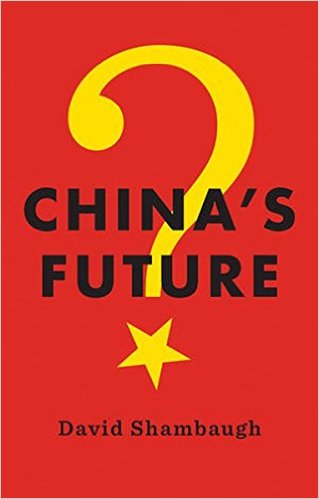 China’s Future, by David Shambaugh (Polity Press)
China’s Future, by David Shambaugh (Polity Press)
The latest from David Shambaugh, one of the Western world’s foremost China experts, is a slight volume but loaded with considerable insight. It comes at an opportune time of shifting international power structures and fateful 2016 developments in particular, including a decision in The Hague that invalidated Beijing’s South China Sea maritime and territorial claims and a United State election that delivered a president who has threatened a trade war with China. Rather than make bold predictions, Shambaugh presents several options for China’s future development along political, economic, and cultural lines, and looks at the likely ramifications of each for the country’s billion-plus people and the many others within its orbit. Shambaugh does, however, declare that a softening of China’s current hard authoritarian pose under President Xi Jinping will be critical to its continuing progress. He notes, for example, that no country in history has escaped the so-called “middle income trap” without embracing democratic change. Recommended by James Bowen, Global Observatory Editor.
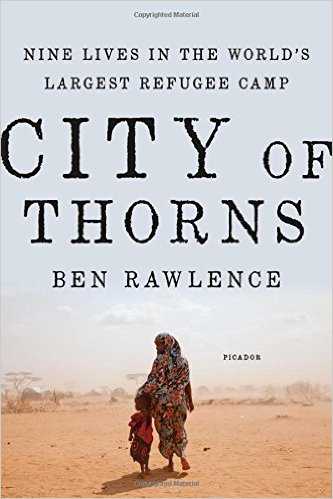 City of Thorns: Nine Lives in the World’s Largest Refugee Camp, by Ben Rawlence (Picador)
City of Thorns: Nine Lives in the World’s Largest Refugee Camp, by Ben Rawlence (Picador)
By November this year, Kenya had softened its stance on the world’s largest refugee complex, Dadaab, which it had earlier threatened to close. Anybody who read Ben Rawlence’s City of Thorns would likely have breathed a sigh of relief at this announcement, given the picture the book paints of possible regional and global consequences should this ever occur. This is not to say that maintaining the United Nations-run camp as it stands is a particularly hopeful alternative; As the author, a former Human Rights Watch researcher, makes clear, life within is often characterized by food shortages, violence, and inter-religious and -ethnic tensions. This is both a highly political and a highly personal book, with the stories of nine inhabitants and those around them making a case for changing not only Dadaab but the international system of refugee response. As Rawlence notes, “The status quo in Dadaab is dependent upon not recognizing the refugees as humans. Because to do so would be to acknowledge that they have rights. And to recognize those rights would be to occasion a reckoning with history that would be too traumatic.” Recommended by James Bowen, Global Observatory Editor.
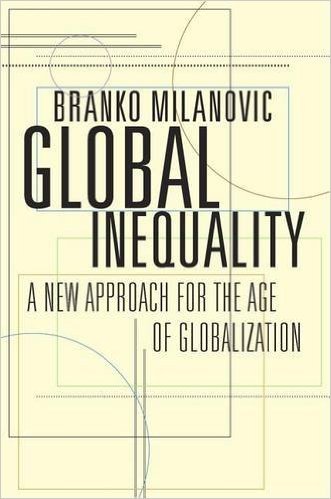 Global Inequality: A New Approach for the Age of Globalization, by Branko Milanovic (Belknap Press)
Global Inequality: A New Approach for the Age of Globalization, by Branko Milanovic (Belknap Press)
Few issues had as much of a role in shaping the critical events of 2016 as economic inequality. The rising gap between the rich and poor within nations, even as it decreases among nations, was a principle causes of the backlash against globalization, and free trade in particular, witnessed to some degree in the United Kingdom’s Brexit vote, the election of incoming American president Donald Trump, and other disruptions in the West this year. As economist Branko Milanovic notes in Global Inequality, this has profound implications for global peace and security given that, as Thomas Piketty’s Capital in the Twenty-First Century previously noted, disasters such as wars and famines have been among the key means of reducing inequality throughout human history. Milanovic advances this past scholarship, noting how inequality has traditionally moved in waves and promoting more benign forces of reducing the gap. At the forefront of these is a more positive, yet politically difficult, exploitation of globalization through more open migration strategies. Recommended by James Bowen, Global Observatory Editor.
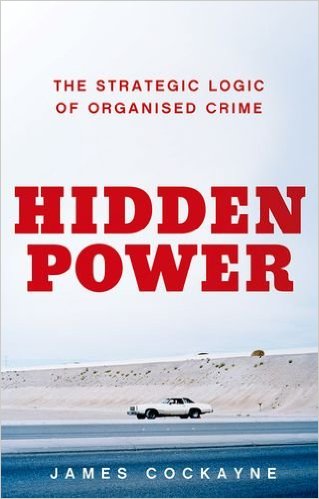 Hidden Power: The Strategic Logic of Organized Crime, by James Cockayne (Oxford University Press)
Hidden Power: The Strategic Logic of Organized Crime, by James Cockayne (Oxford University Press)
The United Nations University’s James Cockayne [formerly of the International Peace Institute] leads the reader in the exploration of the dark side of power, with juicy anecdotes and insights into the gangs of New York; the collaboration between the Mob and United States Navy in World War II’s invasion of Italy; Lucky Luciano; the Cuban mafia; and all the way to events in present day Mexico and Africa’s Sahel region. The result of this work is the development of six types of strategies that criminal organizations adopt when competing with states, and useful considerations on how to deal with these different strategies. Recommended by Francesco Mancini, Non-resident Senior Adviser.
 For Humanity or for the Umma? Aid and Islam in Transnational NGOs, by Marie Juul Petersen (Oxford University Press)
For Humanity or for the Umma? Aid and Islam in Transnational NGOs, by Marie Juul Petersen (Oxford University Press)
This is an interesting analysis of the little researched topic of Muslim aid, despite Muslim NGOs’ increasing visibility in the humanitarian and development fields. The author claims that post-9/11 and the United States-led “war on terror,” most Muslim NGOs were compelled to adjust and transform their aid ideology and strategies to regain international legitimacy as “moderate.” This transformation meant that their conception of aid changed from a religious obligation to help fellow Muslims, through principles of charity alleviating both spiritual and economic needs, toward a more universalist and professional development philosophy. The author argues that NGOs based in the Gulf have maintained the traditional view of Muslim charity and aid to cater to their mostly individual and conservative donors. Albeit, they have also slowly professionalized their work to accommodate the multilateral development aid system’s expectations and escape being labeled as fundamentalist organizations. Muslim NGOs in the West have adapted more fully to the international aid system of professionalism and rights-based human development, yet they silently try to accommodate some expectation from Muslim donors and recipients as religious organizations. The book analyzes how organizations navigate between these systems of sacralized and secularized aid and, in reality, belong to neither. Instead, they emerge as a hybrid, by integrating elements from both ideologies in their understanding of aid. Recommended by Mona Christophersen, Senior Adviser.
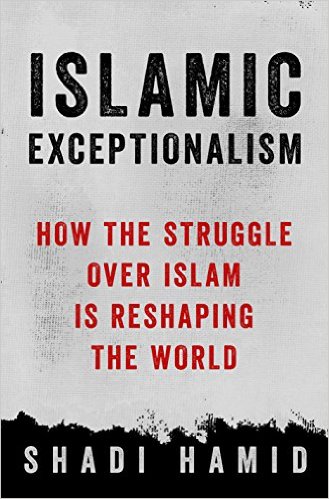 Islamic Exceptionalism: How the Struggle over Islam Is Reshaping the World, by Shadi Hamid (St. Martin’s Press)
Islamic Exceptionalism: How the Struggle over Islam Is Reshaping the World, by Shadi Hamid (St. Martin’s Press)
In this book, scholar and author Shadi Hamid offers a novel and provocative argument on how Islam is, in fact, “exceptional” in how it relates to politics. Exploring the profound implications this has for how we comprehend the future of the Middle East, Hamid asks whether we really should continue to expect history to gravitate towards secularism. He suggests strongly that we should not. Islamism, he writes, broadly understood, is an argument about the centrality of religion in public life—a synthesis that many in the West instinctively resist. But, Hamid argues, it is at the heart of the struggle. It is also at the heart of this book. By addressing the vexing question of the role that religion plays in public life, he argues for a new understanding of how Islam and Islamism shape politics, by examining different models of reckoning with the problem of religion and state, including the terrifying—and alarmingly successful—example of the Islamic State. Recommended by Warren Hoge, Senior Adviser for External Relations.
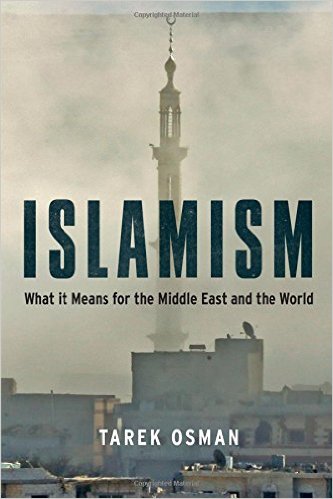 Islamism: What It Means for the Middle East and the World, by Tarek Osman (Yale University Press)
Islamism: What It Means for the Middle East and the World, by Tarek Osman (Yale University Press)
A political, social, and cultural battle has been raging across the Middle East. On one side are the Islamists—those who believe that Islam should be the region’s primary identity. In opposition are the nationalists, secularists, royal families, military establishments, and others who view Islamism as a serious threat to national security, historical identity, and a cohesive society. Writing in the aftermath of the Arab uprisings, the author, who is an Egyptian scholar and creator of BBC documentaries on the Middle East, addresses frontally the crucial question of whether Islamism can ever become compatible with modernity and imagines a course of action where “a new promise will be born.” Recommended by Warren Hoge, Senior Adviser for External Relations.
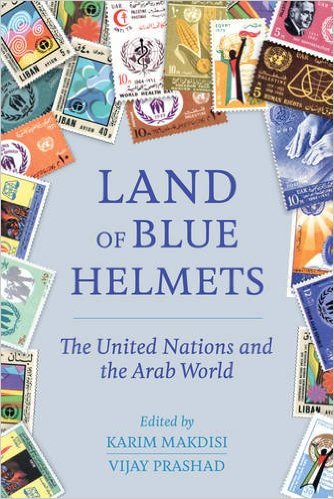 Land of Blue Helmets: The United Nations in the Arab World, edited by Karim Makdisi and Vijay Prashad (University of California Press)
Land of Blue Helmets: The United Nations in the Arab World, edited by Karim Makdisi and Vijay Prashad (University of California Press)
It is impossible to understand the history and the development of the United Nations without looking at the Middle East. There is already a substantial body of literature on different aspects of the world body in the Arab region, but no one has provided the comprehensive vision of Karim Makdisi’s and Vijay Prashad’s coedited volume. Fresh off the press, Land of Blue Helmets: The United Nations and the Arab World addresses the core questions that define the relationship between the two. This is not just about the impact of the UN in the Middle East, but also the reverse: the way Middle Eastern issues have come to define the organization. The contributors include experienced practitioners and cutting-edge academics, all of whom ask the toughest questions. This is an essential volume. Recommended by Jose Vericat, Adviser.
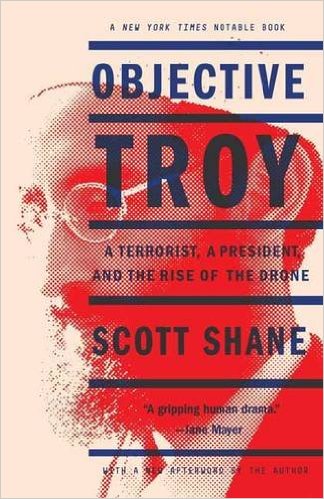 Objective Troy: A Terrorist, a President, and the Rise of the Drone, by Scott Shane (Tim Duggan Books)
Objective Troy: A Terrorist, a President, and the Rise of the Drone, by Scott Shane (Tim Duggan Books)
“Objective Troy” was the military code name for Anwar al-Awlaki, the charismatic American jihadist targeted and killed by an American drone in Yemen in 2011. The book tells the unsettling story of how this once-celebrated and widely cited American imam, who called for moderation after 9/11 and was invited to speak at the Pentagon, ultimately directed his outsized talents to plotting the mass murder of his fellow citizens. It also tells the story of how President Barack Obama was briefed on coming into office about “an exquisite weapon when you want to be both effective and moral.” Of course, drone warfare turned out not to be as antiseptic as advertised, many innocent civilians died, and the president was left with the dilemma of squaring use of the drone with American principles and rules of how to conduct war and minimize human rights abuses. Shane, a national security reporter at The New York Times, chronicles the intense ethical, legal, and political debate that ensued after targeted extra-judicial killing by remote control became American practice. Recommended by Warren Hoge, Senior Adviser for External Relations.
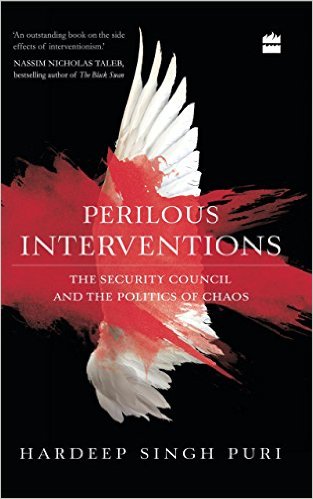 Perilous Interventions: The Security Council and the Politics of Chaos, by Hardeep Singh Puri (HarperCollins)
Perilous Interventions: The Security Council and the Politics of Chaos, by Hardeep Singh Puri (HarperCollins)
In this book, one of India’s most experienced, able and eloquent diplomats [and a former International Peace Institute Vice President], who presided over the United Security Council and its Counter-Terrorism Committee, provides an insightful insider’s account. It takes a clinical look at the response to the Arab Spring and knowingly analyses the core decision-making responsible for dangerous situations—the use of military force, the arming of rebels, the unraveling of countries, and the resulting desperate migrations. The lively narrative covers the international community’s actions in Libya and Syria, and also in Yemen and Ukraine, along with India’s own misadventure in Sri Lanka in the 1980s. It shows how the Security Council can end up undermining the very thing it is charged with insuring: international peace and security. Recommended by Warren Hoge, Senior Adviser for External Relations.
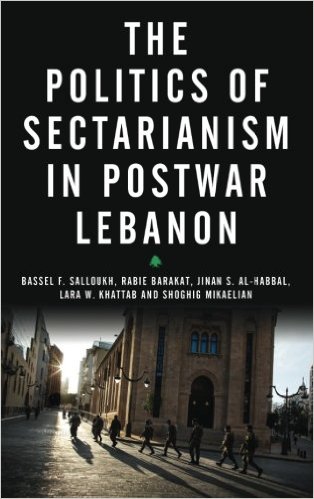 The Politics of Sectarianism in Postwar Lebanon, by Bassel Shalloukh et al. (Pluto Press)
The Politics of Sectarianism in Postwar Lebanon, by Bassel Shalloukh et al. (Pluto Press)
This is a well-researched analysis of Lebanon’s postwar sectarianism. This political system of power-sharing between religious sects, often appraised for saving Lebanon after years of civil war, and in spite of the country’s continued fragility, appears resilient in an increasingly unstable regional context. Yet the authors detail how sectarianism has been entrenched in every aspect of Lebanese political and economic life. They argue that sectarianism is a socioeconomic and political power-taking advantage of the social vacuum created by a weak central state through clientelist economic and discursive practices, to produce and reproduce sectarian subjects and modes of political subjectification. This has led to sustained control in the hands of the political elite and serves to preserve the interests of these at the expense of increasingly impoverished lower and middle classes. The authors warn that sectarian political systems might not be well-suited to promoting democratic freedoms sought by Lebanon and the wider region’s young protesters. Recommended by Mona Christophersen, Senior Adviser.
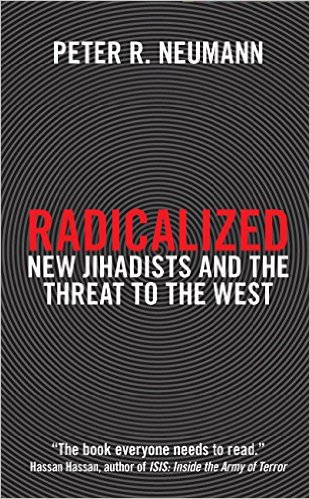 Radicalized: New Jihadists and the Threat to the West, by Peter Neumann (I.B. Taurus)
Radicalized: New Jihadists and the Threat to the West, by Peter Neumann (I.B. Taurus)
Peter Neumann, one of the leading European scholars on jihadist terrorism, has produced a book that every policymaker in the field should read. While the dominant political mantra has been to engage terrorists “over there” in Iraq and Afghanistan, the latest developments shows that the phenomenon of the “new jihadis” will need to be addressed “over here” as well, tackling the sense of social marginalization that plagues Muslim communities across Europe. Recommended by Francesco Mancini, Non-resident Senior Adviser.





